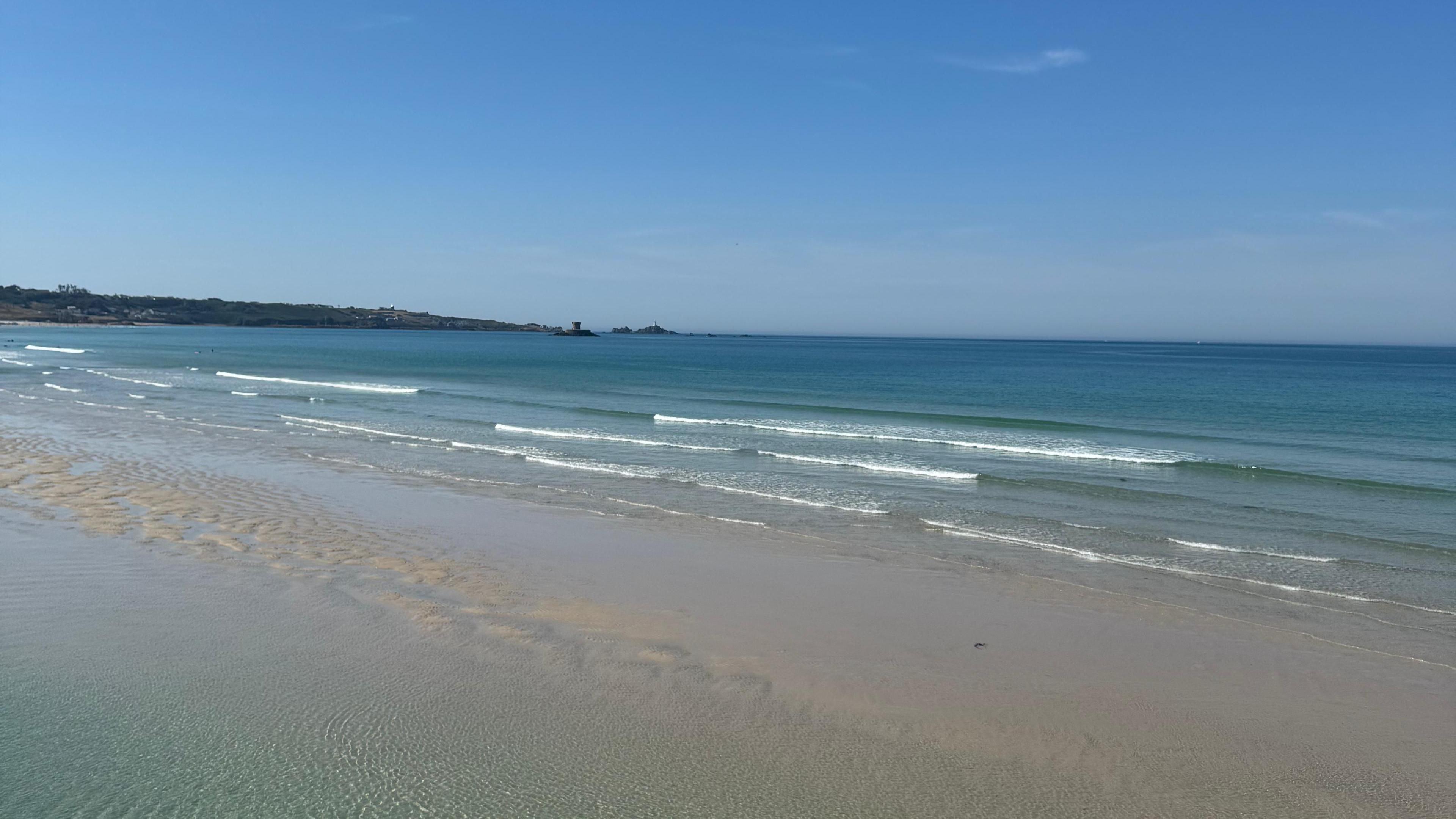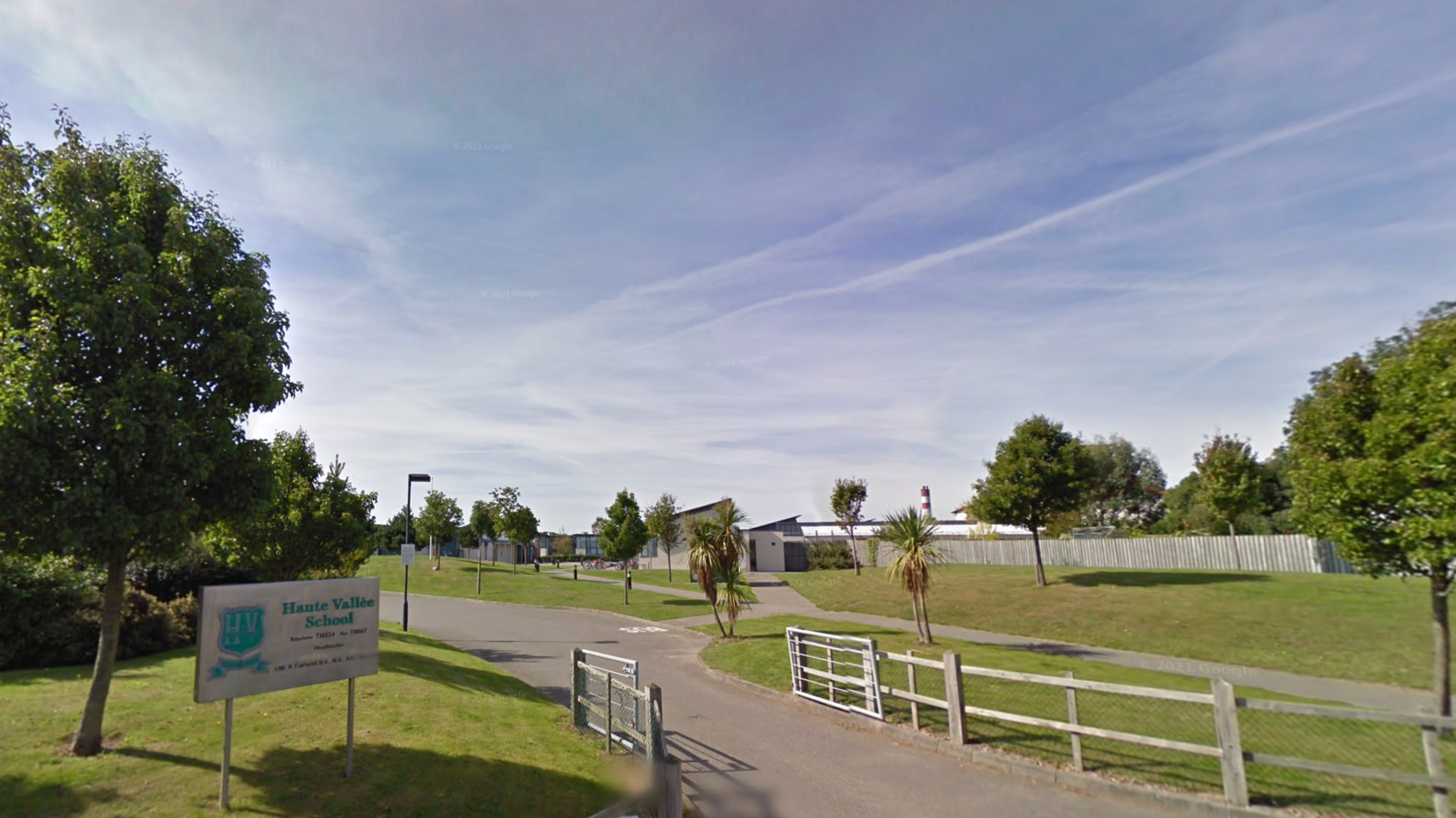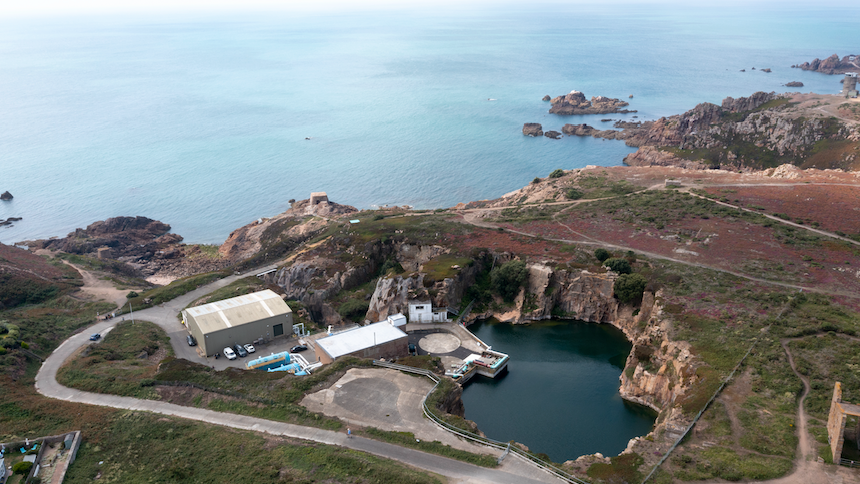Data reveals above-average temperatures for July

The average temperature for July was 19.4C (67F)
- Published
The average temperature for July was about 1C warmer than an island's 30-year average, Jersey Met has reported.
Throughout July, data shows the island's average temperature was 19.4C (67F), compared to the usual average of 18.3C (64F). The month saw episodes of extreme weather - one of which saw a secondary school close at midday as temperatures reached 30C (86F).
The total rainfall was also slightly above average, totalling 48.3mm across the 31 days compared to the average of 40mm.
Despite this, Jersey Water said it had started to use its desalination plant to bolster water supplies after a dry spring meant the authority's reserves had fallen.
The driest July on record was back in 2022 when only 0.7mm fell throughout the whole month.
Temperature and rainfall data comes from the Maison St Louis Observatory which has been recording weather statistics since 1894.
What is climate change?
Climate change is the long-term shift in the Earth's average temperatures and weather conditions.
The world has been warming up quickly over the past 100 years or so. As a result, weather patterns are changing.
Between 2015 and 2024, global temperatures were on average about 1.28C above those of the late 1800s, known as pre-industrial levels, according to the European Copernicus climate service., external
Since the 1980s, each decade has been warmer than the previous one, the UK Met Office says.
The year 2024 was the world's hottest on record, with climate change mainly responsible for the high temperatures.
It was also the first calendar year to surpass 1.5C of warming compared to pre-industrial levels, according to Copernicus.
Follow BBC Jersey on X, external and Facebook, external. Send your story ideas to channel.islands@bbc.co.uk, external.
- Published11 July

- Published23 July
